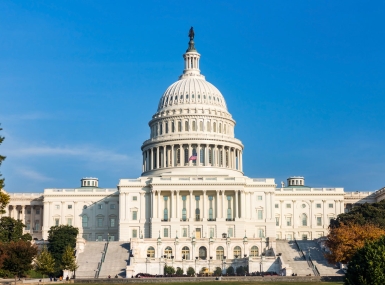Wheels are in motion for autonomous car policies, pilot project
Contra Costa County driver-less shuttle program gets go-ahead from California
The view from the windshields of autonomous cars got a little clearer in late September, with guidance from the Department of Transportation and the advent of a county’s pilot project using a driverless shuttle.
The Sept. 20 release of the Federal Automated Vehicles Policy was geared mainly toward manufacturers, but it included sample state policy language for legislatures to consider — including details about testing, deploying, licensing and operating autonomous vehicles.
“Counties will rely on that kind of language in understanding the issues surrounding autonomous vehicles,” said Daniel McGehee, director of the human factors and vehicle safety research division at the University of Iowa’s Public Policy Center. “There are only a few states that have passed any legislation around autonomous driving but this might get things started so counties can start knowing what to look for.”
Transportation Secretary Anthony Foxx told the Associated Press that members of the Group of Seven nations are interested in adopting the guidelines in their own countries.
“That’s really good news for counties,” McGehee said. “If the world is working together on these common standards, that’s going to help everyone adopt the same rules. Counties won’t have to invest resources to figure out how to do things.”
In California, Contra Costa County already has invested resources. The transportation authority has bought two driverless shuttles from a French company and will be testing them in a matter of months.
While developing the country transportation plan, the authority’s surveys came back with some common responses.
“A lot of people said they’d like to take public transportation but by the time they get to the parking lots, they’re full,” said Linsey Willis, director of external affairs for the authority. “Or they live too far away from a bus stop to walk. It was clear there was a first- and last-mile problem.”
Gov. Jerry Brown accelerated the process when he signed AB 1592, Sept. 29, which will allow the authority to test autonomous cars on public roads. Contra Costa County could become the testing ground for a suburban transit solution.
After preliminary testing on a decommissioned military base that is a hotbed for autonomous vehicles, the 12-passenger shuttles without a steering wheel, brake pedal, accelerator or operater, will debut at a private office park.
“It’s 585 acres, it’s gigantic,” Willis said. “Some of the buildings are on the other sides of a road, though, so we needed approval to operate on public roads before we can do that.”
McGehee sees a lot of potential in counties using automated vehicles to supplement transit in off-hours.
“It’s an opportunity to help different social inequities in commuting,” he said. “Transit authorities that close down service early on certain routes can make use of these vehicles to take a smaller load of passengers. It can be a great match for people who can’t afford a car and (counties) that can’t spend the money to keep the entire system going for 100 people.”
McGehee briefs the Johnson County (Iowa) Board of Supervisors annually on advances in autonomous driving technology and what it could mean for economic development.
“They’ve all ridden in one of these cars, so they know what to expect,” he said. “But it’s not a time to panic, these aren’t going to be invading their roads anytime soon.”
Attachments
Related News

Federal district court issues ruling preventing the federal government from imposing immigration compliance mandates on grant recipients
On November 4, a federal judge in Rhode Island ruled that the U.S. Department of Transportation cannot condition federal grant funding on a recipient’s cooperation with federal immigration enforcement efforts.

U.S. House of Representatives passes SPEED Act and other permitting reform bills
On December 18, the U.S. House of Representatives passed the SPEED Act (H.R. 4776). The SPEED Act would strengthen county involvement in decision-making and make needed commonsense reforms to the federal environmental review process.

Counties and Railroads: Shared Priorities for the Next Surface Transportation Bill
County leaders from across the country have a vital opportunity to ensure their infrastructure priorities are front and center.
